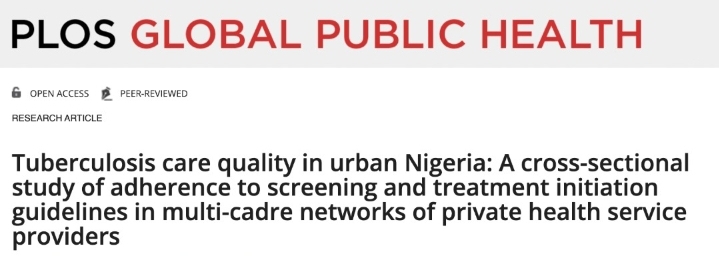

It was a huge accomplishment for the Qualiquant Services Limited team to have been mentioned in the PLOS Global Public Health Journal as the first data collection firm in Nigeria to have successfully collected data on Tuberculosis (TB) care quality using the Standardized Patient (SP) method and following a complex protocol. PLOS Global Public Health is an open access global forum for public health research that reaches across disciplines and regional boundaries to address the biggest health challenges and inequities facing our society today.
Nigeria has a high burden of TB and low case detection rates and her large private health sector footprint represents an untapped resource for combating the disease. It is on this note that the study was carried out to examine the quality of private sector contributions to TB, the USAID-funded Sustaining Health Outcomes through the Private Sector (SHOPS) Plus program evaluated adherence to national standards for management of presumptive and confirmed TB among the clinical facilities, laboratories, pharmacies, and drug shops it trained to deliver TB services.
Qualiquant services team used a standardized patient (SP) survey methodology to measure case management protocol adherence among 837 private and 206 public providers in urban Lagos and Kano. It examined two different scenarios: a “textbook” case of presumptive TB and a treatment initiation case where SPs presented as referred patients with confirmed TB diagnoses. Trained data collectors were deployed to pose as incognito patients with a standardized case presentation to health facilities, after which they debrief the encounter with a field supervisor using structured exit questionnaires administered to generate the quality-of-service-provision data. The SP method is considered a rigorous approach to measure the quality of initial patient-provider interactions across various health areas and disciplines
Details of the findings can be found in the link below:
https://journals.plos.org/globalpublichealth/article?id=10.1371/journal.pgph.0000150
